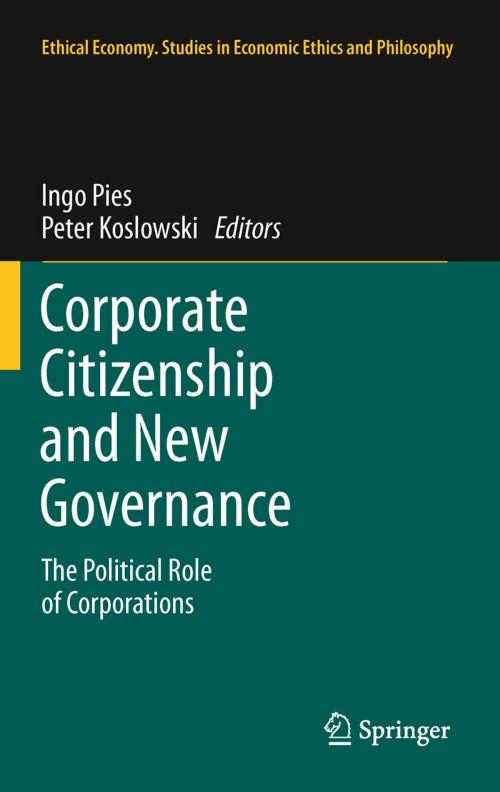Corporate Citizenship and New Governance
The Political Role of Corporations
Business & Finance, Management & Leadership, Management Science, Nonfiction, Religion & Spirituality, Philosophy, Ethics & Moral Philosophy| Author: | ISBN: | 9789400716612 | |
| Publisher: | Springer Netherlands | Publication: | July 30, 2011 |
| Imprint: | Springer | Language: | English |
| Author: | |
| ISBN: | 9789400716612 |
| Publisher: | Springer Netherlands |
| Publication: | July 30, 2011 |
| Imprint: | Springer |
| Language: | English |
This volume unites the perspective of business ethics with approaches from strategic management, economics, law, political science, and with philosophical reflections on the theory of Corporate Citizenship and New Governance.
In view of the internationalization of the (global) economy and the free movement of capital, new instruments of political coordination are needed. These societal changes trigger the two closely intertwined challenges examined in this book. The first challenge relates to the role and the self-conceptualization of business firms as corporate citizens within society. Companies are increasingly expected to assume the social responsibility of helping to shape the rule-framework of globalization. The second challenge refers to the form of the engagement in local, national and international processes of governance. To more credibly and effectively tackle these challenges, corporate actors are ever more participating in rule-setting processes together with civil society organizations and the government.
This volume unites the perspective of business ethics with approaches from strategic management, economics, law, political science, and with philosophical reflections on the theory of Corporate Citizenship and New Governance.
In view of the internationalization of the (global) economy and the free movement of capital, new instruments of political coordination are needed. These societal changes trigger the two closely intertwined challenges examined in this book. The first challenge relates to the role and the self-conceptualization of business firms as corporate citizens within society. Companies are increasingly expected to assume the social responsibility of helping to shape the rule-framework of globalization. The second challenge refers to the form of the engagement in local, national and international processes of governance. To more credibly and effectively tackle these challenges, corporate actors are ever more participating in rule-setting processes together with civil society organizations and the government.















